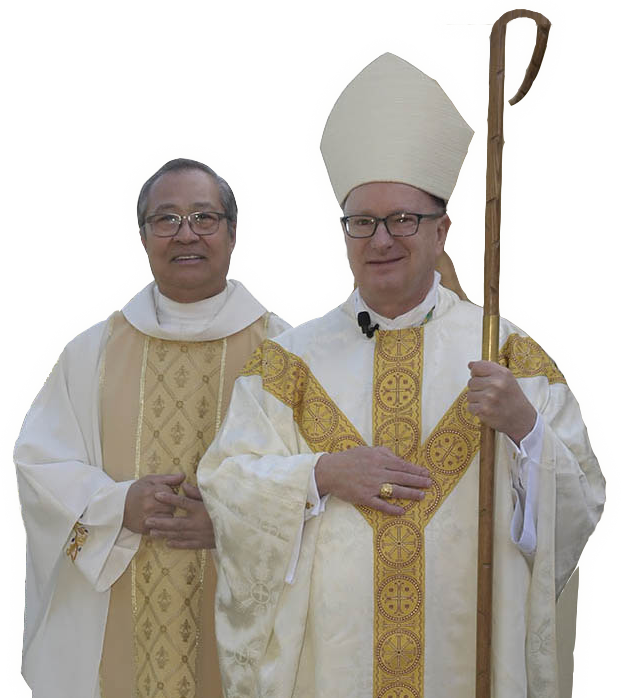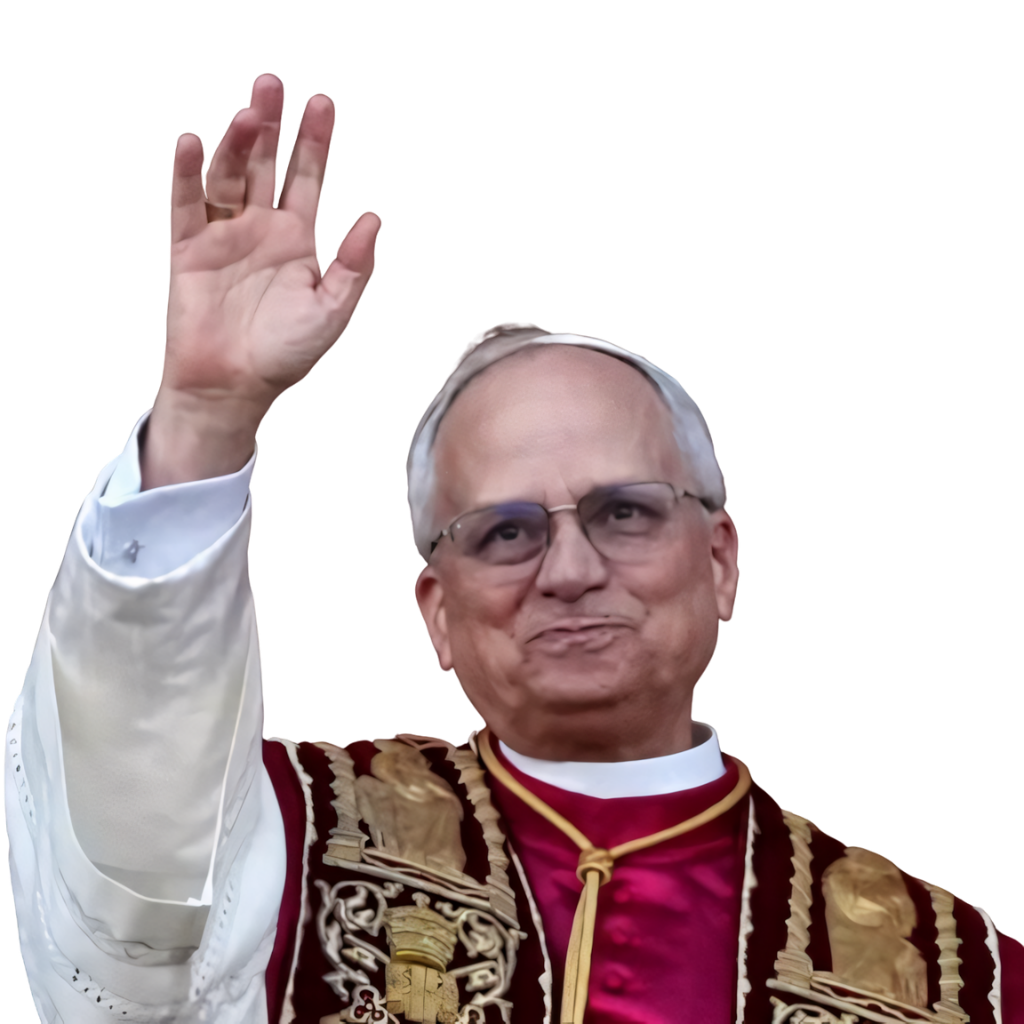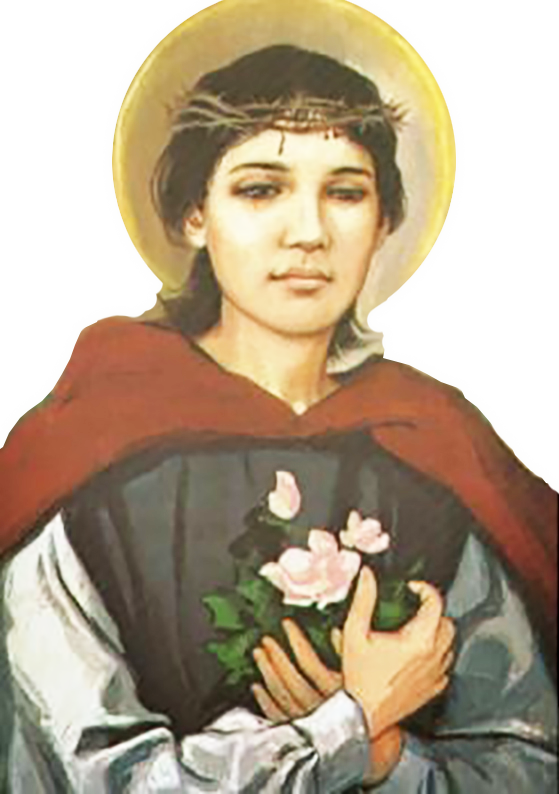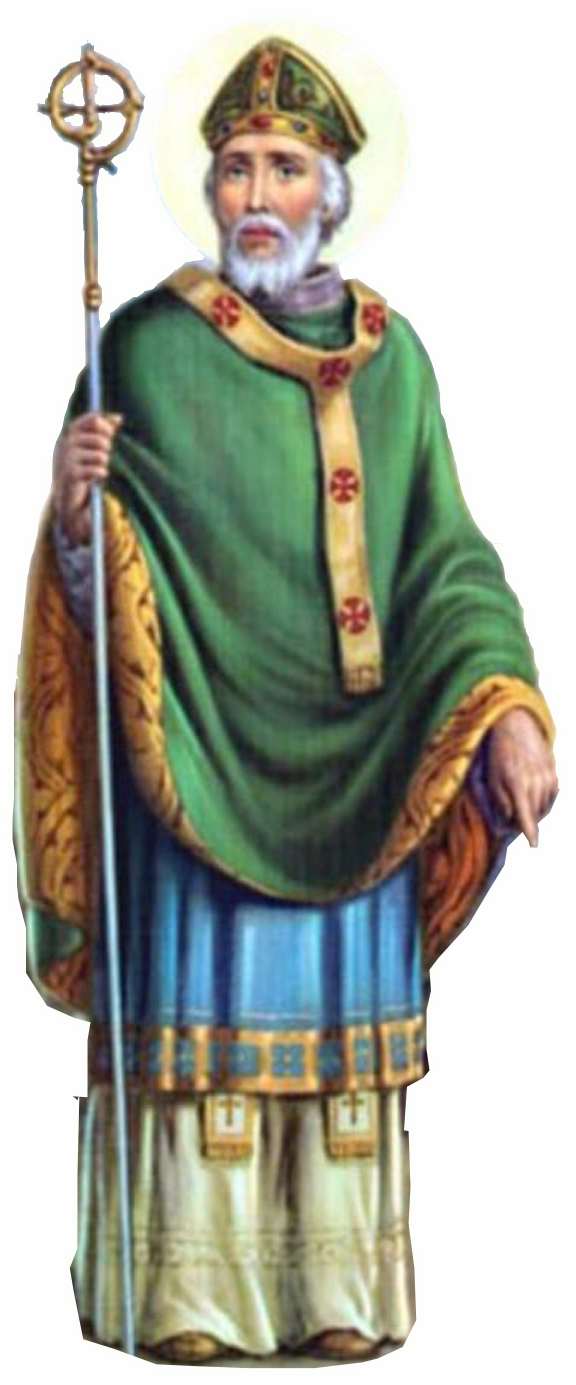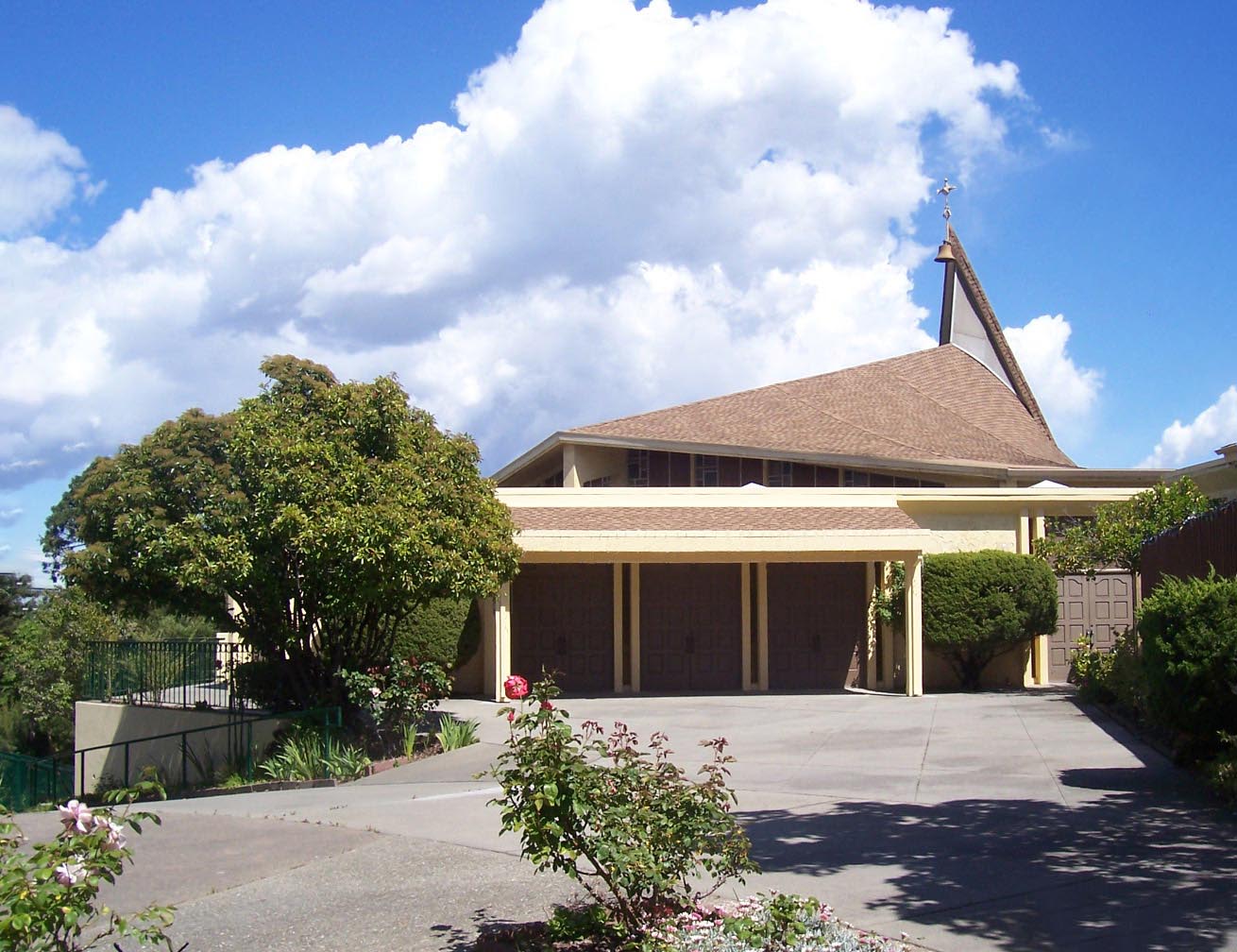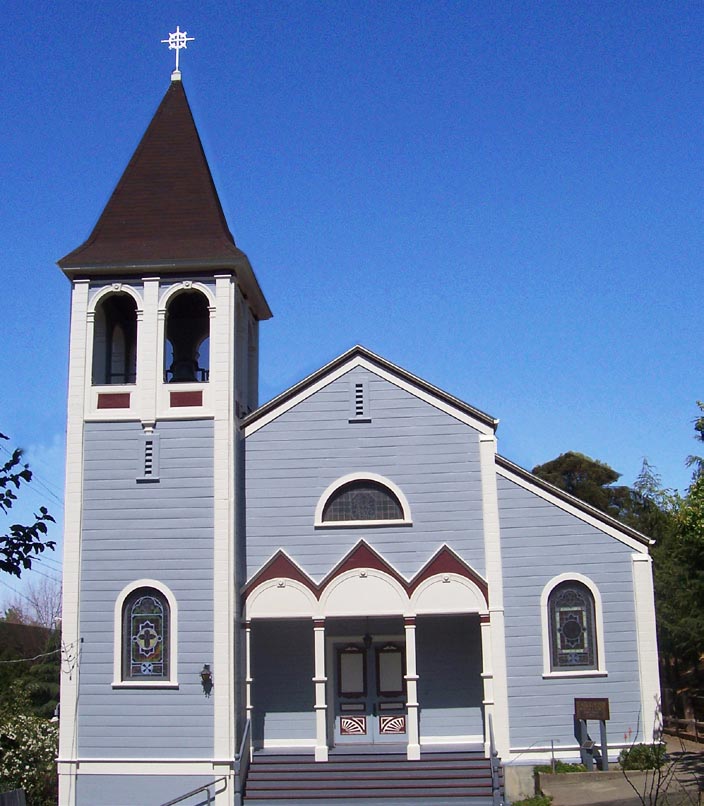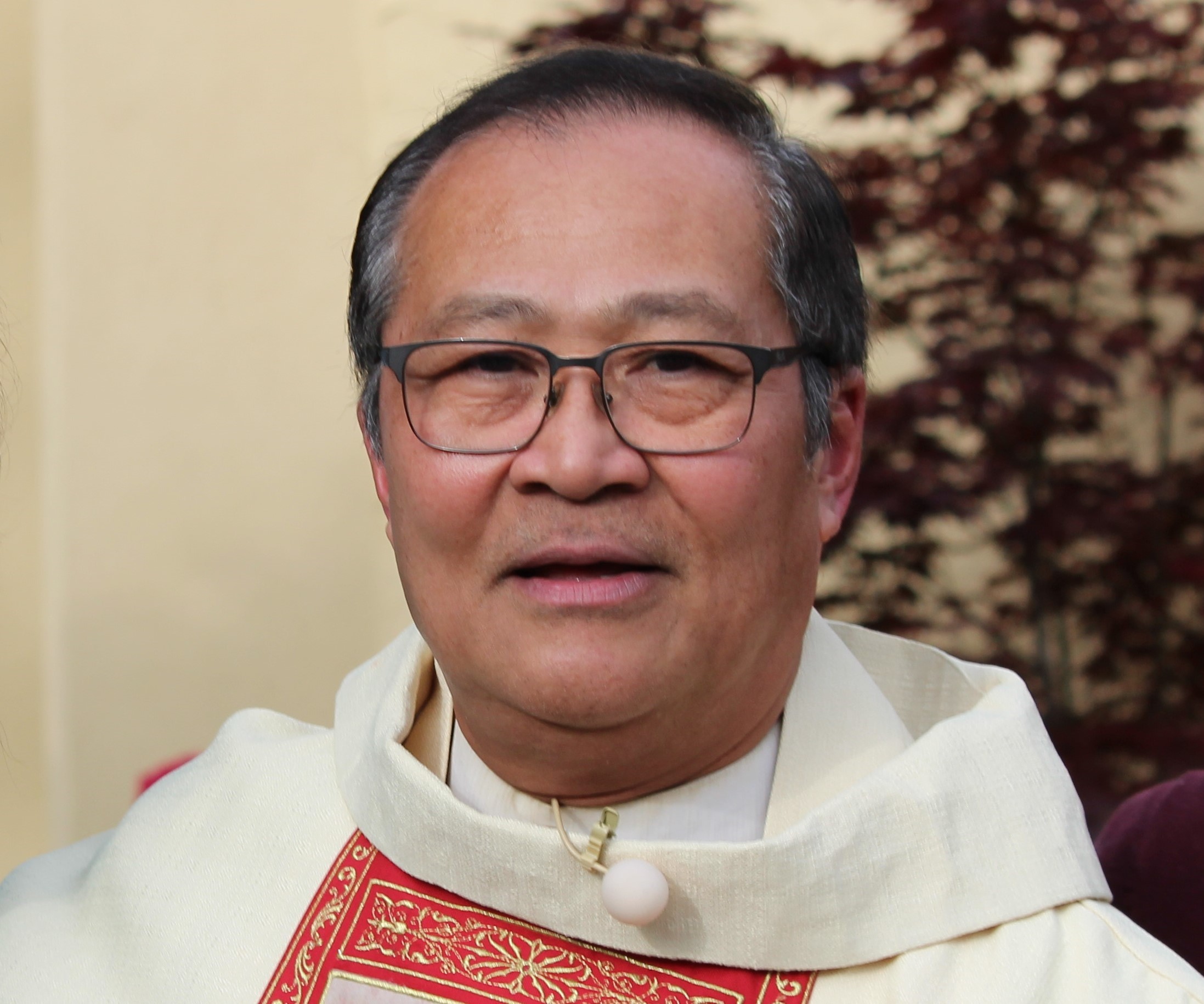
Administrator
Pentecost Sunday
(6/08/2025) Gospel Reading: John 20:19-23
“They Were All Filled with the Holy Spirit!”
Come, Holy Spirit, fill the hearts of the faithful
and kindle in them the fire of your love.
From the desk of Fr. Leo
When a child is born, his or her parents wonder what he or she will become. They cherish fond hopes in their hearts. They want only the best for their child and try to give him or her their spirit.
Jesus was born as the hope of the whole human race. The Epiphany manifested that he was the Savior, not only of the Jewish people, from whom through Mary he had been born, but of the people of all times and all places.
The Church was born on Good Friday, “for it was from the side of Christ as he slept the sleep of death upon the cross that there came forth the wondrous sacrament which is the whole Church.” So wrote Pope Pius XII in 1943 in his encyclical, “Mystici Corporis” (the Mystical Body of Christ). But what was to be the future of this infant Church? Pentecost gives the answer.
On the day of Pentecost, the Church appeared before the world as the sacrament of universal salvation. Pentecost is the Epiphany of the Church. It proclaims that the Church, though Jewish in origin, is truly catholic; it is universal.
As we celebrate the great Solemnity of Pentecost, we should reflect on the truth that people all over the world have heard the voice of Christ in the Church “speaking in their own tongue about the marvels God has accomplished.” In turn these people raise their voices in the rhythms and sounds of a multitude of languages to create a marvelous symphony of thanks and praise to God the Father in the Eucharistic sacrifice. By the inspiration of the Holy Spirit people of every race and tongue, of every tribe and nation, have come to know God as their Father and Jesus as their Savior.
The Church not only spans the globe; it also extends back in time through all the centuries to the death and resurrection of Jesus. Slave and free, king and peasant, saint and sinner, have embraced Christ in the Church since the day of Pentecost.
People who lived in the first century of the Christian era had little in common with us. They understood almost nothing of the solar system, and they did not even know that the western hemisphere existed. And yet we share with them our Catholic faith. Even without understanding our language, they would recognize the Mass as the supreme expression of our faith.
People of the second century never rode in a car or flew in a plane, but we are on the same journey as them through this life to the Father in heaven. Our diet would seem strange to them, but they would recognize the Eucharist as the spiritual food and drink of a pilgrim people.
Pentecost is a day of bigness. It should fill us with an expansive sense of jubilation. It is a time for perspective, for seeing ourselves as part of the growing body of Christ by the gift of the Holy Spirit.
*** + ***
Meditation: Do you know and experience in your own life the gift and power of the Holy Spirit? After his death and resurrection Jesus promised to give his disciples the gift of the Holy Spirit. He said to them, Receive the Holy Spirit! (John 20:22) Jesus knew that his disciples would need the power of the Holy Spirit to carry out the mission entrusted to them. The gift of the Holy Spirit was conditional upon the ascension of Jesus to the right hand of the Father. That is why Jesus instructed the apostles to wait in Jerusalem until you are clothed with power from on high (Luke 24:49). Why did they need power from on high? The Gospels tell us that Jesus was filled with the Holy Spirit when he was baptized at the Jordan River:
"And John bore witness, 'I saw the Spirit descend as a dove from heaven, and it remained on him... this is he who baptizes with the Holy Spirit'" (John 1:32,33; Mark 1:8; Matthew 3:11).
"And Jesus, full of the Holy Spirit, returned from the Jordan, and was led by the Spirit for forty days in the wilderness... and Jesus returned in the power of the Spirit into Galilee" (Luke 4:1,14).
Just as Jesus was anointed with the Spirit at the beginning of his ministry, so the disciples needed the anointing of the Holy Spirit to carry out the mission entrusted to them by Jesus. The Holy Spirit is given to all who are baptized into Jesus Christ to enable us to live a new way of life - a life of love, peace, joy, and righteousness (Romans 14:17). The Holy Spirit fills our hearts with the love of God (Romans 5:7), and he gives us the strength and courage we need in order to live as faith-filled disciples of the Lord Jesus. The Spirit helps us in our weakness (Romans 8:26), and enables us to grow in spiritual freedom - freedom from doubt, fear, and from slavery to our unruly desires (2 Corinthians 3:17; Romans 8:21). The Spirit instructs us in the ways of God, and guides us in living according to God's will. The Spirit is the source and giver of all holiness. Isaiah foretold the seven-fold gifts that the Spirit would give: wisdom, understanding, counsel, fortitude, knowledge, piety, and fear of the Lord (Isaiah 11:2).
The gift of Pentecost - the outpouring of the Holy Spirit, and the spiritual gifts and blessings of God - are made possible through the death, resurrection, and ascension of the Lord Jesus. After his resurrection Jesus "breathed" on his disciples and gave them the Holy Spirit. Just as God breathed life into Adam, so the gift of the Holy Spirit is an impartation of "new life" for his people. With the gift of the Holy Spirit a new creation begins. God recreates us for his glory. Jesus' gift of peace to his disciples was more than an absence of trouble. His peace included the forgiveness of sins and the fullness of everything good. Do you want power to live a faith-filled life as a disciple of Jesus? Ask the Father to fill you with the power of his Holy Spirit (Luke 11:13).
Basil the Great (329-379 AD), an early church father, explains the role of the Holy Spirit in our lives:
"The Spirit restores paradise to us and the way to heaven and adoption as children of God; he instills confidence that we may call God truly Father and grants us the grace of Christ to be children of the light and to enjoy eternal glory. In a word, he bestows the fullness of blessings in this world and the next; for we may contemplate now in the mirror of faith the promised things we shall someday enjoy. If this is the foretaste, what must the reality be? If these are the first fruits, what must be the harvest?" (From the treatise by Basil on The Holy Spirit)
The Lord Jesus offers each one of us the gift and power of his Holy Spirit. He wants to make our faith strong, give us hope that endures, and a love that never grows cold. He never refuses to give his Spirit to those who ask with expectant faith. Jesus instructed his disciples to ask confidently for the gift of the Spirit: "If you then, who are evil, know how to give good gifts to your children, how much more will the heavenly Father give the Holy Spirit to those who ask him!" (Luke 11:13). Do you thirst for God and for the abundant life he offers through the gift of his Spirit?
Lord Jesus, I thank you for the gift of Pentecost and for the new life you offer in the Holy Spirit. Fill me with your Holy Spirit and set my heart ablaze with the fire of your love that I may serve you in joy and freedom.
read more at: http://dailyscripture.servantsoftheword.org
*** + ***
Daily Scripture Readings and Meditations
*******
Latest Parish Pastoral Council Meeting Minutes
Latest Finance Committee Meeting Minutes
*******
Please see our Sunday bulletin for more information.
*******
Please support our local advertisers.
*******
Online Donations
The Diocese of Oakland is trying to help those parishes and parishioner where online giving is not in place. To do this, they have set up a way for people to donate online through the Diocese to their own parish.
ALL DONATIONS THROUGH THIS LINK GO DIRECTLY TO THE PARISH THAT IS SELECTED.
Go to the Parish Support page of the Dioceses of Oakland home page:
https://www.oakdiocese.org/parish-support
Choose or enter the amount of your donation.
Select ‘St. Rose of Lima, Crockett’ or ‘St. Patrick Mission, Port Costa’ in the Parish Name box.
Enter your billing address, email address and card information.
Once the submit button is clicked, a short reply will show up confirming the transaction was successful. A few minutes later, a message will be sent to the email account entered with a summary of the gift, including the parish it will be directed towards, and a simple thank you. The Diocese will process the gifts, which entails charging the credit or debit card.
NOTE: Your card or debit card may not be charged immediately. The gift will be processed by an OMA staff member.
*******
Don’t take a vacation from God!
If travelling to unfamiliar places, include God in your itineraries. Information on local churches and mass times can be found at
or by calling 1-800-MASS-TIMES within the USA.
*******
Listen to America’s Talk Radio Network for Catholics.
*******
Some interesting websites
US Conference of Catholic Bishops
*******
PETITIONS
*******
Prayers for the sick
Pray for our sick brothers and sisters specially:
Arthur Balagot
Sister Yolnda Leos
*******
Prayers for the deceased
In your prayers, please remember in a special way, the repose of the souls of our departed sisters and brothers.
Christina Quiapo
Marleana Airoldi
******

